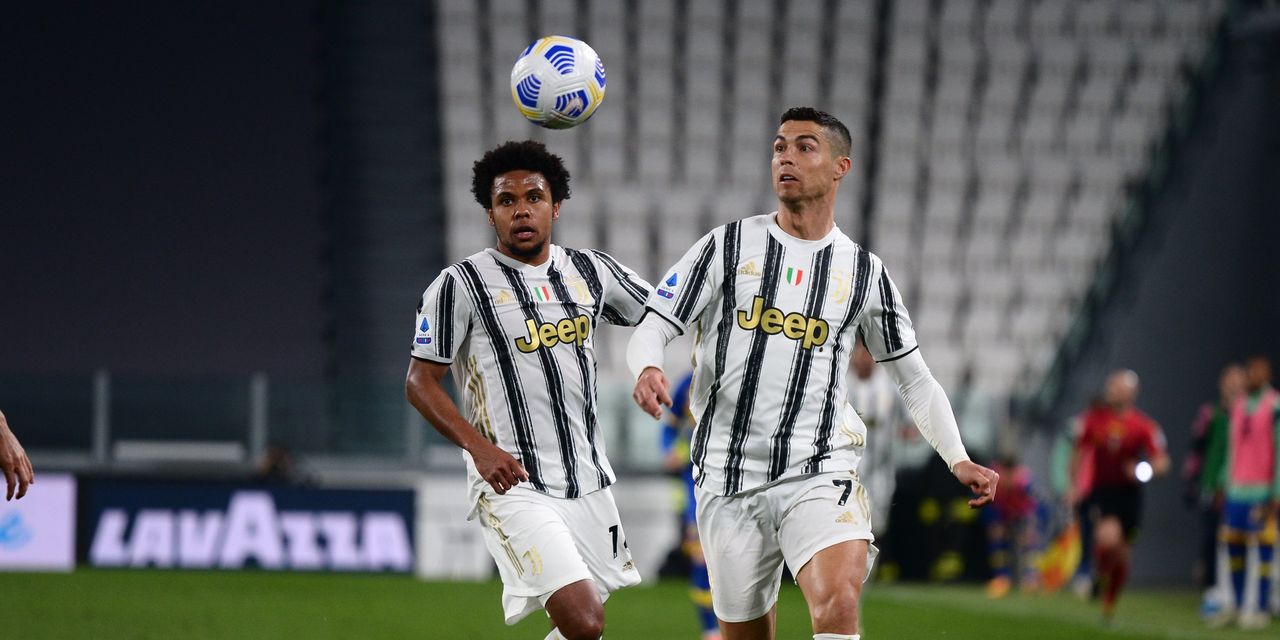

& Co. made a rare public apology, saying its role providing the financial backing for a new European soccer league was a misjudgment.
The breakaway Super League aimed to reshape the European soccer landscape but collapsed this week as six of the proposed circuit’s 12 elite clubs pulled out following ferocious outcry from fans, rival clubs, players, U.K. Prime Minister
and Prince William, the president of England’s Football Association.
JPMorgan pledged around $4 billion of financing to get the new Super League off the ground. It worked with the 12 clubs, including
Barcelona and Juventus, as well as a Madrid-based firm called Key Capital Partners, which has a long-running relationship with Real Madrid President Florentino Perez’s international construction company.
“We clearly misjudged how this deal would be viewed by the wider football community and how it might impact them in the future,” a spokesman for the bank said. “We will learn from this.”
The widespread criticism of the elite sports project that JPMorgan backed jars with the stated goal of
Jamie Dimon,
the bank’s chief executive, to work closely with the communities where it operates. Mr. Dimon wrote to shareholders earlier this month that “businesses must earn the trust of their customers and communities by acting ethically and morally.”
JPMorgan and the Super League had planned to issue what they called “infrastructure loans,” secured against future television rights payments, of around $350 million to each participating club. The money was to be spent on improving stadiums and training facilities or plugging holes in their finances caused by the pandemic.
The failed project to reshape the soccer landscape was one of the most ambitious in the sport’s recent memory. The 12 founding clubs—six from England, three from Spain, and three from Italy—had aimed to create an alternative to the lucrative continentwide Champions League tournament, which has been run by UEFA, soccer’s European governing body, since its inception. Teams currently reach the Champions League each year based on their performance in their domestic leagues. The 12 founders would have been permanent members of the new competition that didn’t need to requalify season after season.
The Champions League rakes in more than $3 billion a year in television and commercial payments and airs in nearly 200 countries around the world. But the Super League clubs felt that the existing setup produced too few marquee matchups and not enough guaranteed games.
The project collapsed on Tuesday evening after the six English Premier League clubs pulled out.
“As a result of listening to you and the wider football community over recent days we are withdrawing from the proposed Super League,” Arsenal, one of the 12 clubs, said in a statement. “We made a mistake, and we apologize for it.”
Copyright ©2020 Dow Jones & Company, Inc. All Rights Reserved. 87990cbe856818d5eddac44c7b1cdeb8
Appeared in the April 24, 2021, print edition as ‘JPMorgan Apologizes Over Super League.’
24World Media does not take any responsibility of the information you see on this page. The content this page contains is from independent third-party content provider. If you have any concerns regarding the content, please free to write us here: contact@24worldmedia.com

Common Mistakes When Using Athletic Field Tarps

High-Performance Diesel Truck Upgrades You Should Consider

Warehouse Optimization Tips To Improve Performance

Fire Hazards in Daily Life: The Most Common Ignition Sources

Yellowstone’s Wolves: A Debate Over Their Role in the Park’s Ecosystem

Earth Day 2024: A Look at 3 Places Adapting Quickly to Fight Climate Change

Millions of Girls in Africa Will Miss HPV Shots After Merck Production Problem

This Lava Tube in Saudi Arabia Has Been a Human Refuge for 7,000 Years

Four Wild Ways to Save the Koala (That Just Might Work)

National Academy Asks Court to Strip Sackler Name From Endowment

Ways Industrial Copper Helps Energy Production

The Ins and Out of Industrial Conveyor Belts